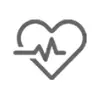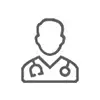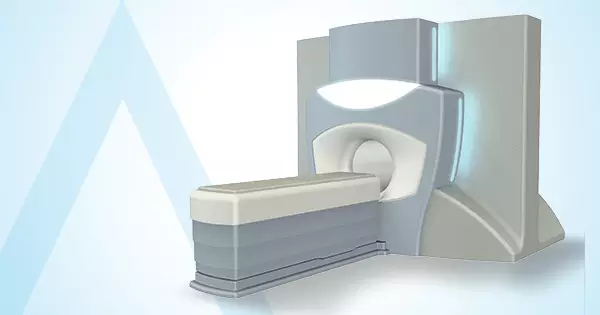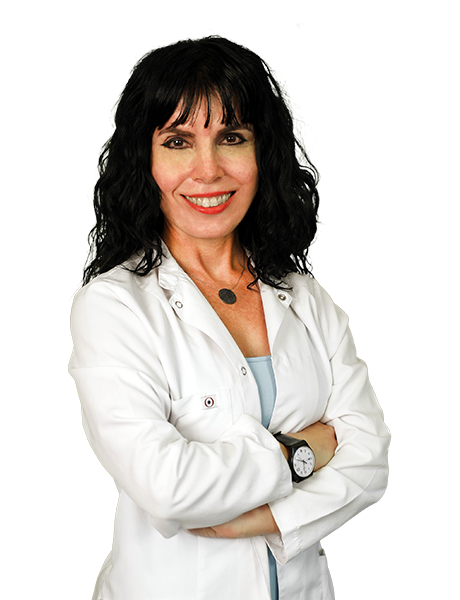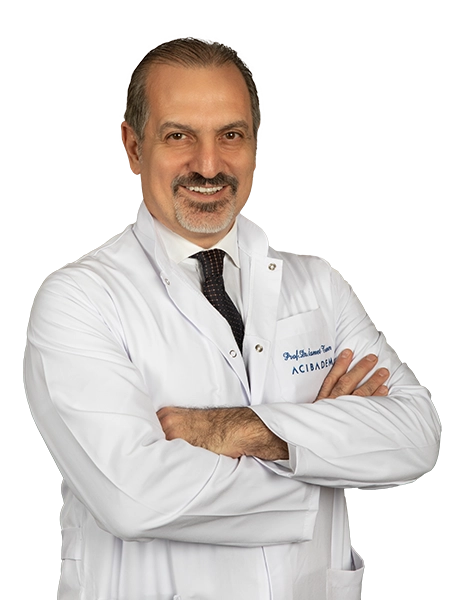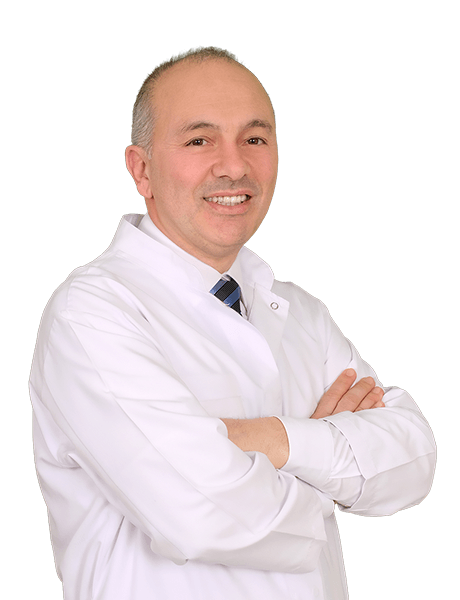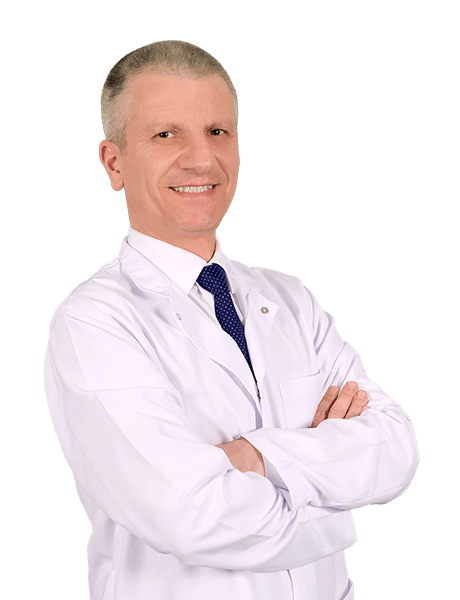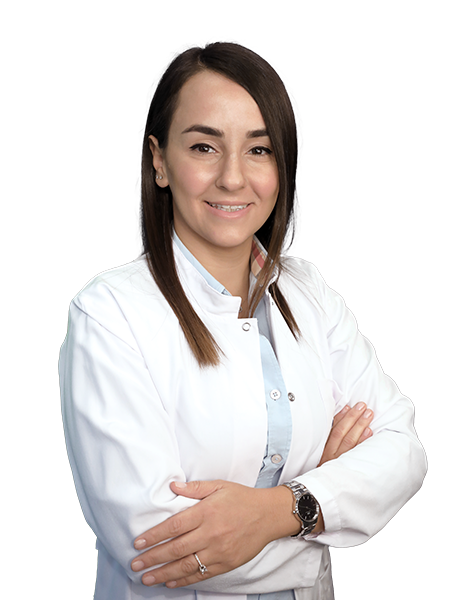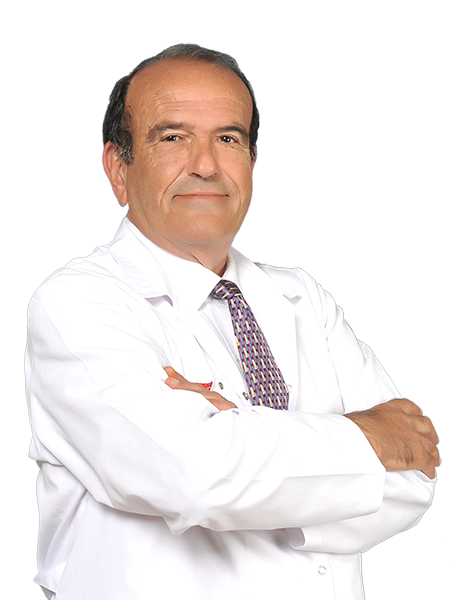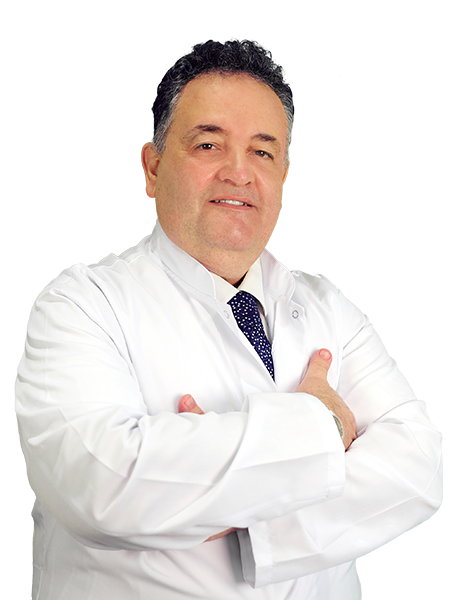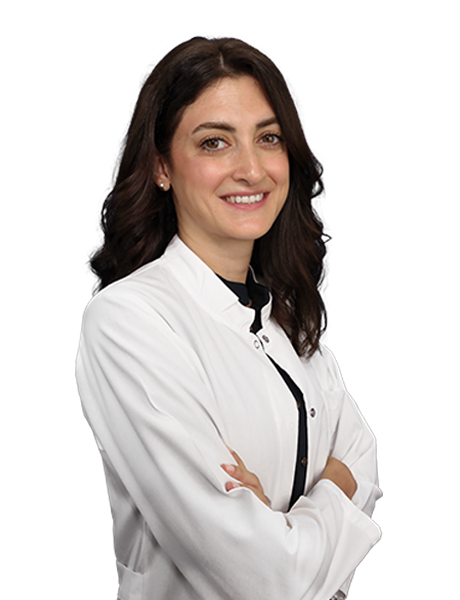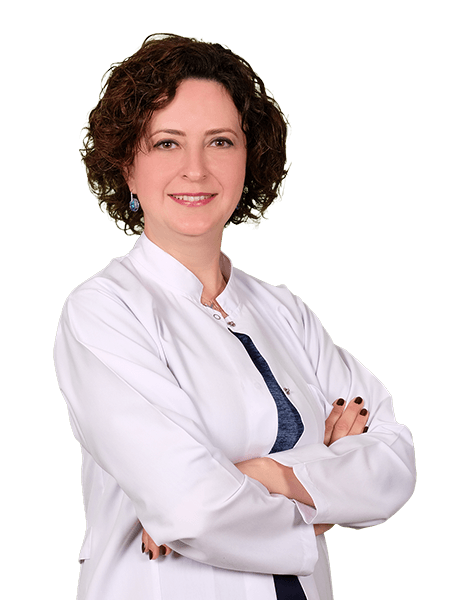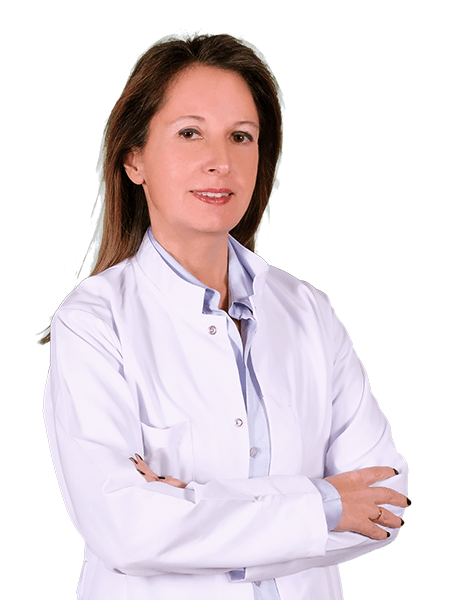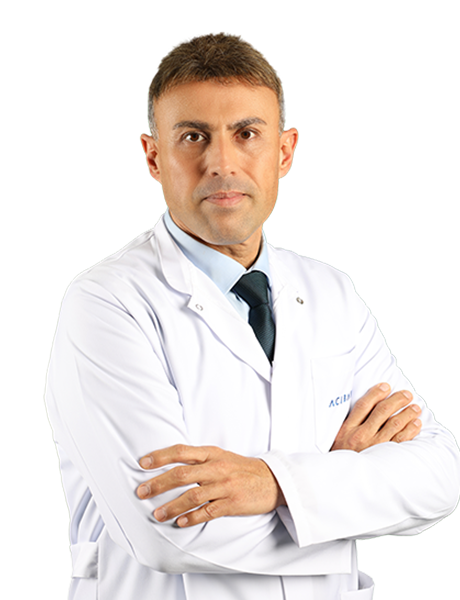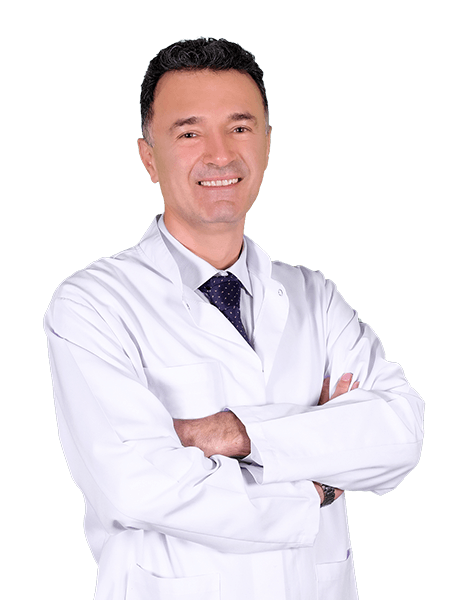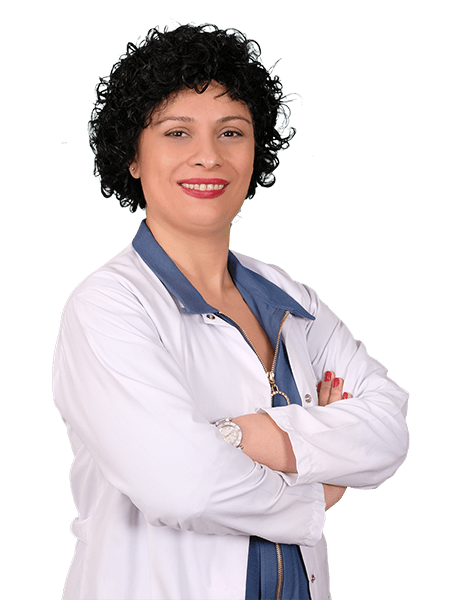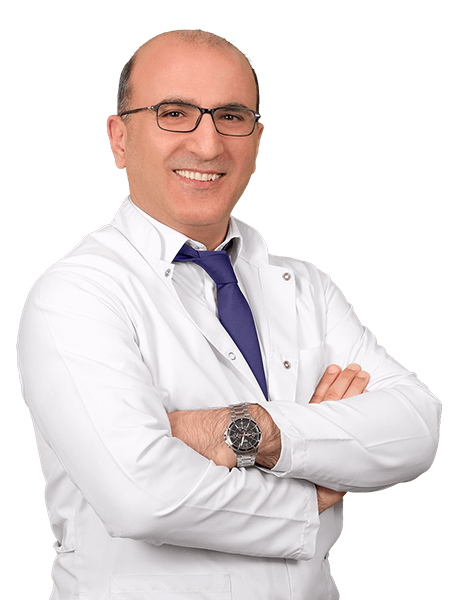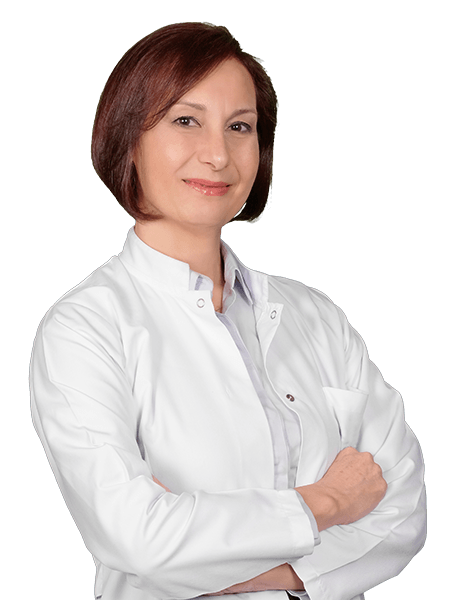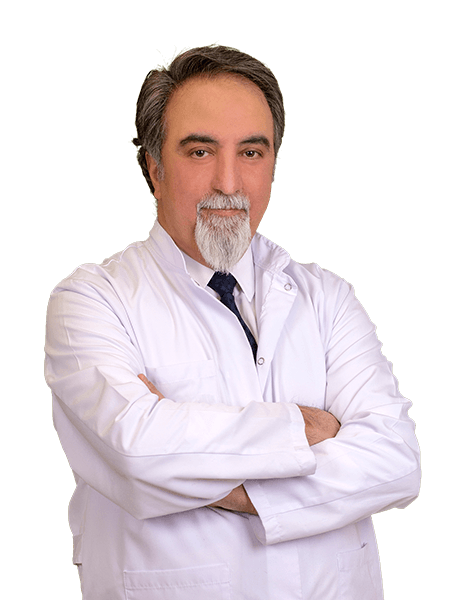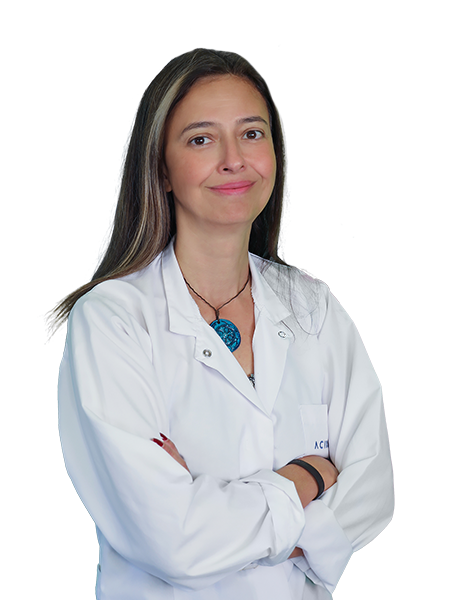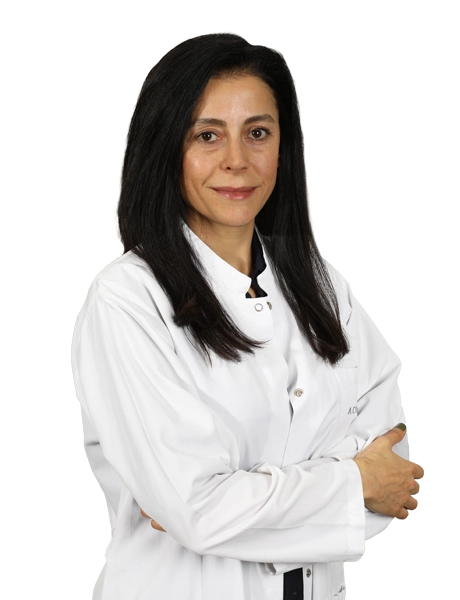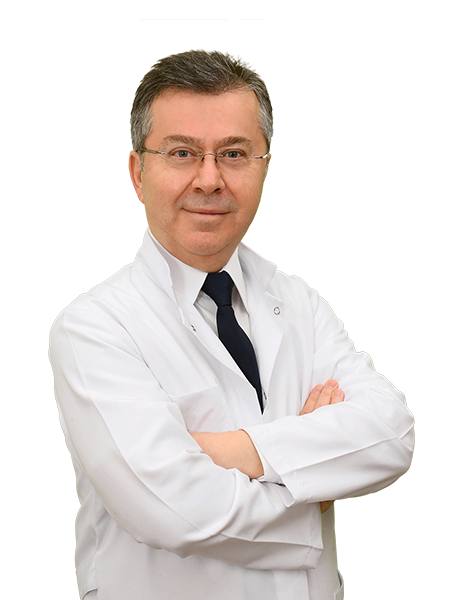Check up is health screening for a person with no specific health problem by taking the age and genetic and environmental factors into consideration to diagnose the potential diseases early and taking measures accordingly. Check-up ensures early diagnosis of diseases that can be treated difficultly at advanced stages; therefore, treatment can be started in the shortest time possible.
Personalized Check-up Programs are available at Acıbadem Healthcare Group, which are tailored to age and gender and aim diagnosis and treatment of potential diseases and risks. You are referred to relevant departments and have necessary tests and examinations according to results of this method, called “Health Risk Assessment”.
Check-up programs are available in Acıbadem Adana, Ankara, Bodrum, Bursa, Eskişehir, Kayseri and Kocaeli Hospitals for people who do not reside in Istanbul.
Our Check-up consultants accompany the patients at Check-up units of hospitals and medical centers to track the process by minimizing the need to walk between departments for patients. Laboratory services included in a check-up panel are rendered at laboratories of Acıbadem Healthcare Group with TS EN ISO 15189 certificate. Moreover;
- Laboratory services have ISO 15189 certificate
- Medical report and test results are stored in digital media
- Check-up units are assigned independent areas in the hospital
- Physical examination by doctors, blood sampling and ECG can be performed at special check-up units
- Check-up consultant accompanies the patient throughout the process.
A physician may order more detailed tests and examinations at the end of the check-up, if a risk is identified in the check-up patient. After the check-up program is completed, all your health information is stored and you can keep in touch with your family physician for follow-up of your health status.
Please call +90 444 55 44 for more information...
What Does Check-Up Include?
Check-up does not only consist of tests and examinations. On the other hand, examinations performed after onset of disease are not check-up. Patients are not solely evaluated over laboratory tests in a check-up; accurate assessments can also be made through discussions with patients before the check-up.
Check-up is a general assessment over encounter for routine health evaluation, laboratory tests and radiology studies. Overall health is assessed considering lifestyle, diet, habits and familial risks.
Patients are informed about what should be done and issues that require attention according to check-up results. Should a disorder is diagnosed or in case of a health problem, the patient is referred to relevant department.
Why You Should Have Check-up?
The risks that can cause a disease can be identified. It plays an important role in early diagnosis.
When You Should Have Check-up?
It is best to have a check-up once a year, starting at adult ages, even if you do not have any complaints or concerns. Annual check-up is important to help the physician compare the results of previous year and observe interval changes in your health status and risks.
How is Check-up Performed? How long does it take?
For check-up, you first should make an appointment from a hospital or medical center where check-up is available. Your check-up doctor will ask you questions about medications you take and your past history of diseases. Accordingly, scope of check-up is determined and the doctor informs the patient about drugs that should be used or stopped, if any, before the check-up visit.
Patients should stop eating and drinking for a certain period of time (8 to 10 hours) before presenting for check-up; when the center is visited, blood and urine samples are collected along with electrocardiogram (ECG) and radiology studies, such as chest X-ray and abdominal ultrasound. Age- and gender-specific tests can also be ordered, such as mammography and PSA test. Endoscopic examinations can be planned for patients older than 50.
Duration of check-up may vary according to content of panel. Your results are reported on the same day of examinations and/or following days depending on the items included in the panel.
Preparation for Check-up
False Facts About Check-up
FALSE: I feel good. I do not need to have check-up.
TRUE: Check-up aims diagnosing a disease at an early stage, before symptoms emerge. Therefore, it is wise to have check-up.
FALSE: I don’t have a family history of cancer, and therefore, I don’t need a cancer screening.
TRUE: Both genetic and lifestyle factors play role in cancer. You may be at risk due to your lifestyle.
FALSE: I am healthy, although I smoke and consume alcohol for a long time. I don’t need a health assessment.
TRUE: Smoking can cause respiratory system diseases, especially lung cancer, but also including others, such as emphysema and COPD, due to the toxic gases in cigarette. In this case, it paves the way for many conditions like heart diseases. Alcohol consumption, on the other hand, impairs liver functions and sets the ground for diseases like cirrhosis. Check-up allows you see how healthy your organs that are critically important for your overall health, such as liver, heart and lungs.
FALSE: I have chronic headache, but your check-up program does not cover an MRI scan.
TRUE: If you have persistent headache, you should visit a physician instead of having a check-up.
FALSE: I had check-up a couple of years ago; no health problem was detected. I do not need to have check-up again.
TRUE: There might be adverse changes in your health over the time. Specialists recommend that you have annual check-ups, have your check-up doctor review your previous reports to make sure that your healthy status is maintained.
FALSE: I have private life insurance, having check-up is not of much importance.
TRUE: Your private life insurance helps you with health expenses when you are sick; check-up is a practice that helps early diagnosis of a disease at an early stage, before complaints develop.
Check-Up Programs
Check-up Programs available at Acıbadem Hospitals and Outpatient Clinics vary depending on the age, gender, genetic factors, lifestyle and health history of the person. Risk factors of the patient are also taken into consideration. For example, prostate cancer screening is important for middle-aged men, while breast and uterus screening gains importance in middle-aged women. Screening programs are available for people with predisposition to various diseases.
Check-up Programs available in Acıbadem are Female General Check-up, Male General Check-up, Children Check-up and Pediatric Heart Health Check-up, “Always Young” Geriatric Check-up, Heart and Lung Screening Programs, Diabetes Panel and Oncologic Nutrition and Diet Programs.
After the check-up program is completed, all your health information is stored and you can keep in touch with your family physician for follow-up of your health status.
Check-up Programs
Check-up implies health screening that aims diagnosis of potential diseases at an early stage in a person with no apparent health problem in the light of age, gender and genetic and environmental factors in order to take measures in advance.
Check-Up Programs
Check-up Programs available at Acıbadem Hospitals and Outpatient Clinics vary depending on the age, gender, genetic factors, lifestyle and health history of the person. Risk factors of the patient are also taken into consideration. For example, prostate cancer screening is important for middle-aged men, while breast and uterus screening gains importance in middle-aged women. Screening programs are available for people with predisposition to various diseases.
Check-up Programs available in Acıbadem are Female General Check-up, Male General Check-up, Children Check-up and Pediatric Heart Health Check-up, “Always Young” Geriatric Check-up, Osteoporosis, Heart and Lung Screening Programs, Diabetes Panel and Oncologic Nutrition and Diet Programs.
What is preventive medicine / check-up approach?
Following main screening methods in check-up programs, your physician may recommend you lifestyle and eating pattern modifications, preventive immunization, personalized diet and exercise in order to eliminate and minimize your health risks.
Can risk of diseases be eliminated with check-up?
Excluding genetic risks, many environmental and lifestyle risks can be eliminated or reduced. Tests and examinations should be combined with review of detailed medical history and family history as well as physical examination; the patient should also be informed about self-examination.
Once the disease develops, risks increase incrementally (including treatment risks). Taking measures over regular health check-up is the most rational way to cope with a disease.
Who should have check-up? Why is it important for a healthy person to have check-up once a year?
Annual check-up is very important to detect the risks that have not progressed enough to cause complaints or that are not clinically evident in a healthy person. Along with a detailed medical history and physical examination, laboratory tests can identify these risks.
Patients are informed accordingly and guided to sustain a less risky life. Annual check-up is important to help the physician compare the results of previous year and observe interval changes in your health status and risks.
You can prevent potential diseases by having check-up once a year starting at adulthood, even if you do not have any complaints or concerns.
Role of Check-up in Early Diagnosis
- If diseases are detected at an early stage through regular health screening before symptoms emerge, measures can be taken before advanced stages of many diseases.
- Our lifestyle has changed substantially over several centuries. Toxins, ionizing radiation and refined foods are risks factors for many diseases, especially cancer. Check-up allows taking measures for risks of diseases before their onset.
- Cardiovascular diseases can be diagnosed, eliminated or treated at an early stage.
- Early-stage symptoms that can be caused by these risks can be evaluated through check-up programs that are planned according to risk factors, such as genetic structure, gender, age and race.
- Patients can be trained and educated on about self-examination in a check-up.
- Mouth cancers can be prevented with dental examination.
- Patients are encouraged to make positive dietary changes in their dietician visits.
Which cancers can be diagnosed with check-up?
Risks of many cancers are assessed to a certain extent in a health screening. Final diagnoses can only be made with biopsy. No finding should be considered certain before biopsy. Too detailed imaging tests are not appropriate for check-up. They cause unnecessary advanced workup.
Cancers that are most often diagnosed early in regular screening programs are as follows:
- Colorectal cancers, lung cancers, prostate cancer in men, breast and cervix cancers in women (with PAP smear and HPV test)
- Numerous problems occur that impair metabolism and trigger onset of cancer. Detecting these problems is as important as diagnosing the cancer (For example, the link between obesity and cancer).
- Regular health screening help early diagnosis of most prevalent and fatal lung and colorectal cancers as well as breast cancer, endometrial cancer and thyroid cancer in women and prostate cancer in men.
- Following cancers are prioritized and investigated in below written order for regular screening in women: 1. Breast 2. Endometrial 3. Thyroid cancers
- Following cancers are prioritized and investigated in below written order for regular screening in men: 1.Prostate 2. Colorectal 3. Stomach 4. Caposi Sarcoma 5. Mouth (lip, mouth cavity) 6.Urinary Bladder 7. Lung Cancer (most common in Turkey) 8. Liver, 9. Non-Hodgkin lymphoma.
Check-up implies health screening that aims diagnosis of potential diseases at an early stage in a person with no apparent health problem in the light of age and genetic and environmental factors in order to take measures in advance.
Treatment of health problems is challenging at advanced ages; they also cause a wearing period of life for patients and families. Annual health screening may save life especially in people with notable family history, as it allows early diagnosis that is followed by treatment planning.
Doctors
-
![Prof. BERRİN KARADAĞ, M.D.]() Prof. BERRİN KARADAĞ, M.D.
Check-Up
Book an Appointment
Prof. BERRİN KARADAĞ, M.D.
Check-Up
Book an Appointment
-
![Prof. İSMET TAMER, M.D.]() Prof. İSMET TAMER, M.D.
Check-Up
Book an Appointment
Prof. İSMET TAMER, M.D.
Check-Up
Book an Appointment
-
![ABDULLAH DERİN, M.D.]() ABDULLAH DERİN, M.D.
Check-Up
Book an Appointment
ABDULLAH DERİN, M.D.
Check-Up
Book an Appointment
-
![BAŞARAN KOÇ, M.D.]() BAŞARAN KOÇ, M.D.
Check-Up
Book an Appointment
BAŞARAN KOÇ, M.D.
Check-Up
Book an Appointment
-
![BURCU DURAN TAK, M.D.]() BURCU DURAN TAK, M.D.
Check-Up
Book an Appointment
BURCU DURAN TAK, M.D.
Check-Up
Book an Appointment
-
![CENGİZ BABACAN, M.D.]() CENGİZ BABACAN, M.D.
Check-Up
Book an Appointment
CENGİZ BABACAN, M.D.
Check-Up
Book an Appointment
-
![CENK ERSEMİZ, M.D.]() CENK ERSEMİZ, M.D.
Check-Up
Book an Appointment
CENK ERSEMİZ, M.D.
Check-Up
Book an Appointment
-
![DAMLA S. AYDIN (G), M.D.]() DAMLA S. AYDIN (G), M.D.
Check-Up
Book an Appointment
DAMLA S. AYDIN (G), M.D.
Check-Up
Book an Appointment
-
![DİLEK ERSUN, M.D.]() DİLEK ERSUN, M.D.
Check-Up
Book an Appointment
DİLEK ERSUN, M.D.
Check-Up
Book an Appointment
-
![GONCA GÜL ATALAY, M.D.]() GONCA GÜL ATALAY, M.D.
Check-Up
Book an Appointment
GONCA GÜL ATALAY, M.D.
Check-Up
Book an Appointment
-
![KENAN ÇEKEM, M.D.]() KENAN ÇEKEM, M.D.
Check-Up
Book an Appointment
KENAN ÇEKEM, M.D.
Check-Up
Book an Appointment
-
![LÜTFİ KOÇYİĞİT, M.D.]() LÜTFİ KOÇYİĞİT, M.D.
Check-Up
Book an Appointment
LÜTFİ KOÇYİĞİT, M.D.
Check-Up
Book an Appointment
-
![MİNE ERGÜVEN, M.D.]() MİNE ERGÜVEN, M.D.
Check-Up
Book an Appointment
MİNE ERGÜVEN, M.D.
Check-Up
Book an Appointment
-
![OZAN AKKAYA, M.D.]() OZAN AKKAYA, M.D.
Check-Up
Book an Appointment
OZAN AKKAYA, M.D.
Check-Up
Book an Appointment
-
![SERAP GÜLŞENİ, M.D.]() SERAP GÜLŞENİ, M.D.
Check-Up
Book an Appointment
SERAP GÜLŞENİ, M.D.
Check-Up
Book an Appointment
-
![SUNA TUZCU, M.D.]() SUNA TUZCU, M.D.
Check-Up
Book an Appointment
SUNA TUZCU, M.D.
Check-Up
Book an Appointment
-
![Ş.SERTAÇ ESİN, M.D.]() Ş.SERTAÇ ESİN, M.D.
Check-Up
Book an Appointment
Ş.SERTAÇ ESİN, M.D.
Check-Up
Book an Appointment
-
![ŞİRİN PARKAN, M.D.]() ŞİRİN PARKAN, M.D.
Check-Up
Book an Appointment
ŞİRİN PARKAN, M.D.
Check-Up
Book an Appointment
-
![TÜLAY TEKİN, M.D.]() TÜLAY TEKİN, M.D.
Check-Up
Book an Appointment
TÜLAY TEKİN, M.D.
Check-Up
Book an Appointment
-
![YALÇIN ÜNLÜ, M.D.]() YALÇIN ÜNLÜ, M.D.
Check-Up
Book an Appointment
YALÇIN ÜNLÜ, M.D.
Check-Up
Book an Appointment
Hospitals
-
![Altunizade Hospital]() Altunizade Hospital
Altunizade Hospital -
![Ankara Hospital]() Ankara Hospital
Ankara Hospital -
![Atakent Hospital]() Atakent Hospital
Atakent Hospital -
![Ataşehir Hospital]() Ataşehir Hospital
Ataşehir Hospital -
![Bakırköy Hospital]() Bakırköy Hospital
Bakırköy Hospital -
![Beylikdüzü Surgical Outpatient Clinic]() Beylikdüzü Surgical Outpatient Clinic
Beylikdüzü Surgical Outpatient Clinic -
![Bodrum Hospital]() Bodrum Hospital
Bodrum Hospital -
![Bodrum Outpatient Clinic]() Bodrum Outpatient Clinic
Bodrum Outpatient Clinic -
![Dr. Şinasi Can (Kadıköy) Hospital]() Dr. Şinasi Can (Kadıköy) Hospital
Dr. Şinasi Can (Kadıköy) Hospital -
![Etiler Outpatient Clinic]() Etiler Outpatient Clinic
Etiler Outpatient Clinic -
![Fulya Hospital]() Fulya Hospital
Fulya Hospital -
![International Hospital]() International Hospital
International Hospital -
![Kayseri Hospital]() Kayseri Hospital
Kayseri Hospital -
![Kozyatağı Hospital]() Kozyatağı Hospital
Kozyatağı Hospital -
![Maslak Hospital]() Maslak Hospital
Maslak Hospital -
![Taksim Hospital]() Taksim Hospital
Taksim Hospital




